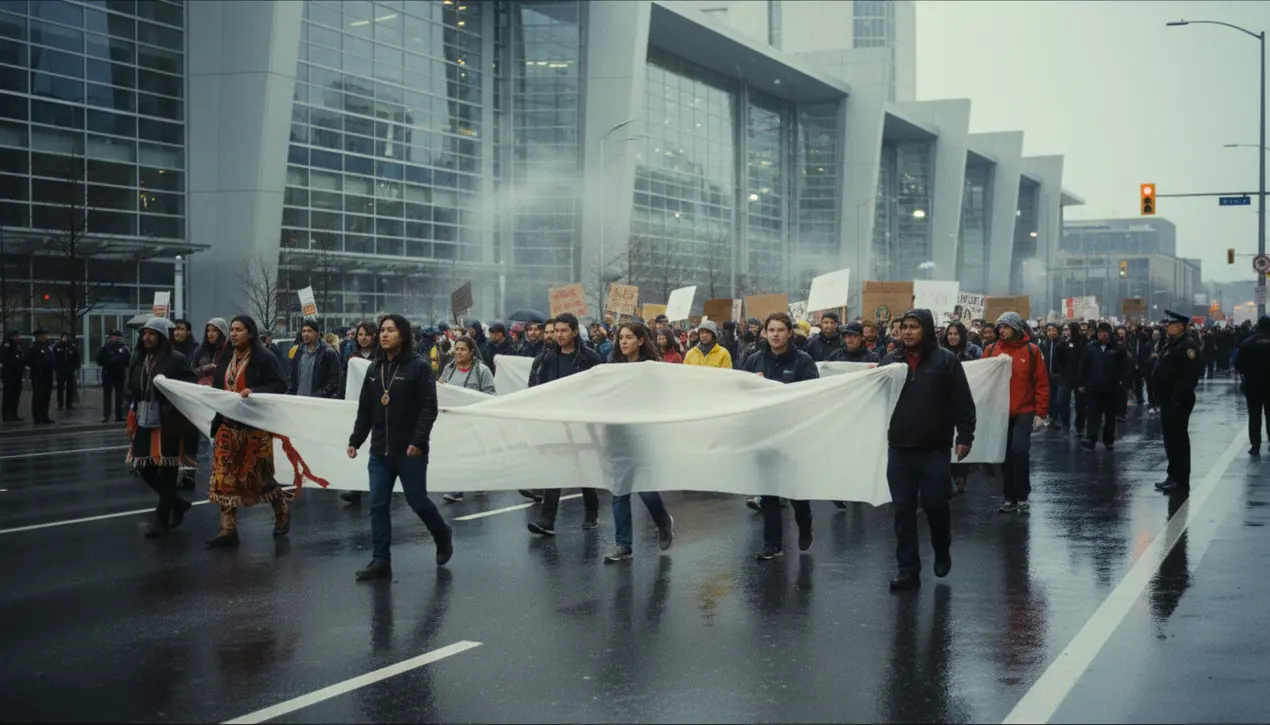
Politicsprotests & movementsClimate Activism
Protesters March Outside COP30 Climate Summit.
RA
Rachel Adams
2 hours ago7 min read
For the first time since the landmark but contentious Glasgow summit of 2021, the potent voice of public dissent has been officially permitted to resonate directly outside the hallowed halls of a UN climate conference, as a determined stream of protesters marched outside the COP30 venue. This is not merely a procedural footnote; it is a critical barometer of the strained relationship between global climate diplomacy and the grassroots movements that hold it accountable.The 2021 decision to heavily restrict demonstrations, citing pandemic protocols, was met with fierce criticism from climate justice groups who argued it was a tactic to silence the very people most affected by the negotiations' outcomes. The return of sanctioned protest at COP30 represents a fragile, hard-won concession, a pressure valve released after years of mounting frustration.The marchers, a mosaic of Indigenous leaders from the Amazon, youth activists from sinking Pacific islands, and European climate campaigners, carry with them the ghost of every failed pledge and delayed action since the Paris Agreement. Their presence is a living reminder that while diplomats debate percentage points and technicalities in the air-conditioned plenaries, the tangible consequences of glacial progress are measured in submerged homes, scorched harvests, and lost species.The scientific community, represented by bodies like the IPCC, has issued report after report with escalating urgency, their data forming the bedrock of the protesters' grievances. Yet, the chasm between scientific prescription and political action remains vast, a gap filled by the voices in the streets.The strategic importance of this demonstration lies in its timing and location, forcing delegates to physically confront the human face of the climate emergency as they arrive and depart. This visible, audible accountability is a cornerstone of democratic process, a check on the power of closed-door negotiations.The consequences of ignoring this mobilized civil society are profound, risking not only a further erosion of public trust in multilateral institutions but also fueling the very civil disobedience and social unrest that policymakers ostensibly seek to avoid. The march outside COP30 is therefore more than an event; it is a symptom of a planet at a tipping point, demanding that its inhabitants be heard before the final gavel falls on another summit of insufficient ambition.
#COP30
#climate protests
#environmental activism
#UN summit
#featured
Stay Informed. Act Smarter.
Get weekly highlights, major headlines, and expert insights — then put your knowledge to work in our live prediction markets.
Comments
Loading comments...
© 2025 Outpoll Service LTD. All rights reserved.